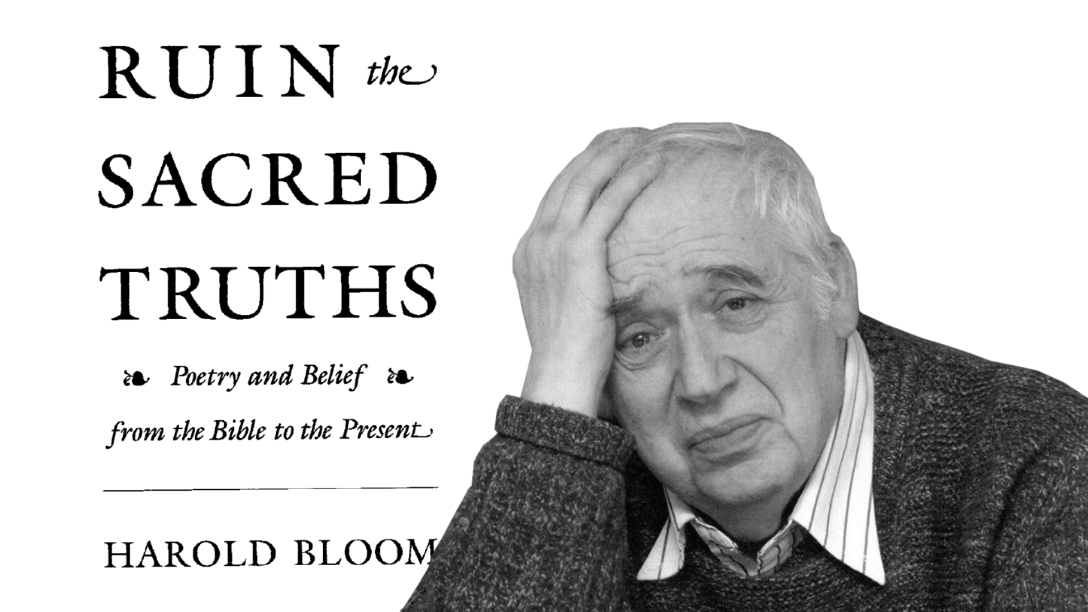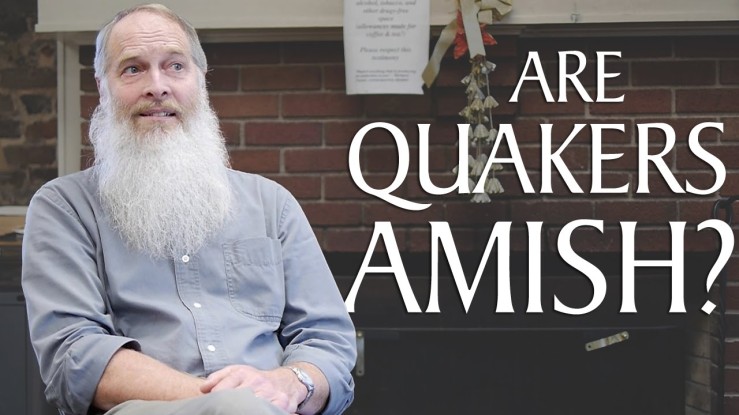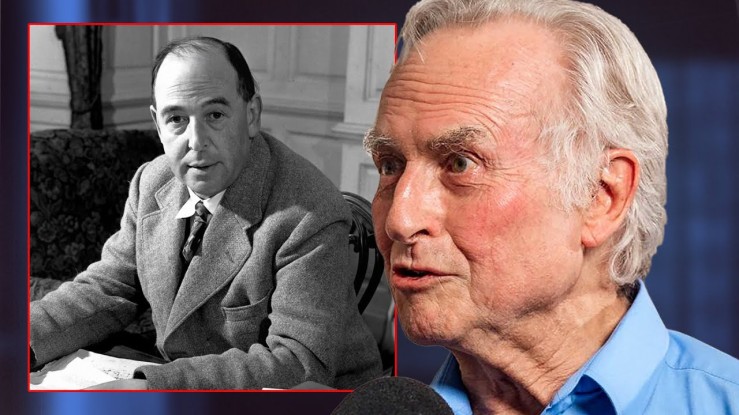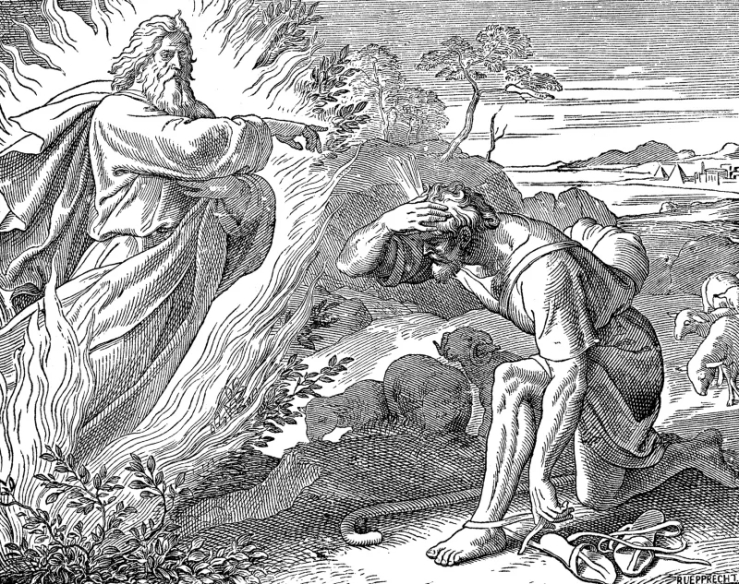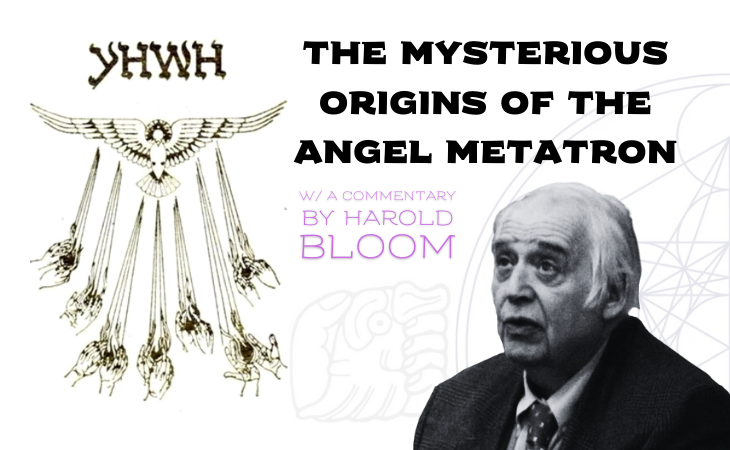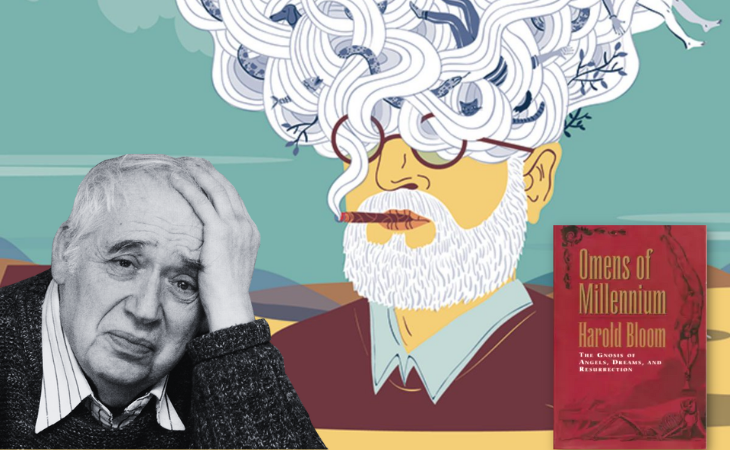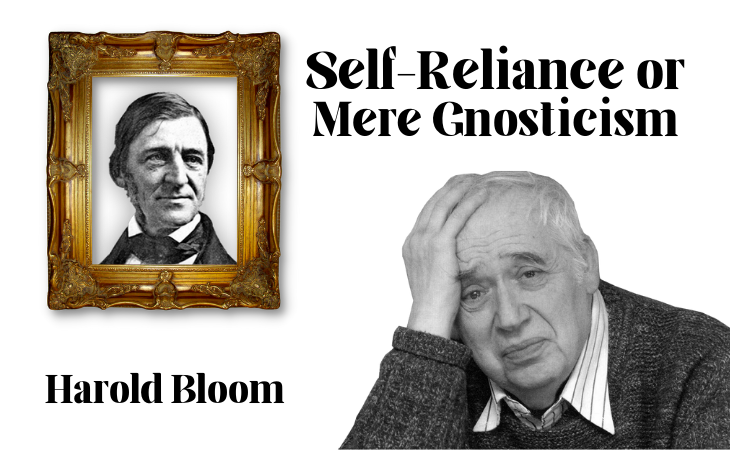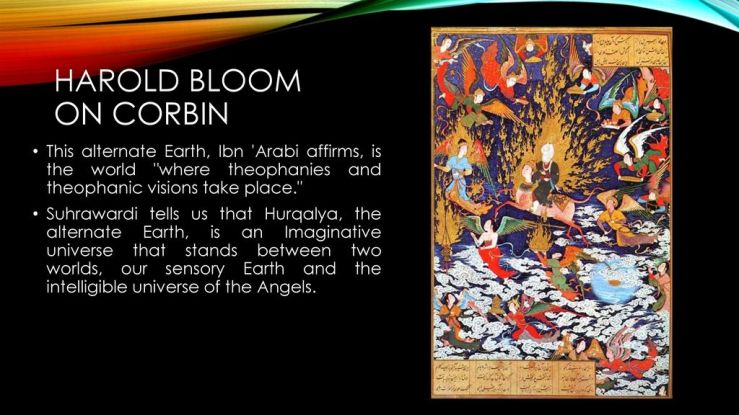SOMEWHERE about the year 100 B.C.E., a Pharisee composed what tradition has called the Book of Jubilees, an exuberant title for quite a bad piece ofwriting. This garrulous work is also known as the Little Genesis, an odd naming since it is much longer than Genesis and covers Exodus as well. I don’t enjoy reading the Book of Jubilees, but it fascinates me, not by anything it contains, but by everything it excludes. What it leaves out of Genesis and Exodus, by a curiously proleptic design, is very nearly everything in those books of the Hebrew Bible that modern scholarship has assigned to the authorship of the Yahwist, or J writer. Let us call him simply J, and muse at his virtual expulsion from this Pharasaic retelling.
J, according to a number ofcurrent Biblical scholars, including many literalists who refuse to recognize a metaphor even when it confronts them, has had no real existence, but merely was invented by the Wellhausen school and those who came after. Authorship is somewhat out of fashion at the moment, because of Parisian preferences, but like shorter skirts authorship always does return again. I am not going to argue with theory on this, since I believe that literature is part of speculation or wonder, and any hypothesis is good enough for me. American criticism, as Richard Rorty spendidly reminds us, is one of the consequences of pragmatism. The primal author J, more ancient than his great rival, the hypothesis Homer, constitutes a difference that has made an overwhelming difference, overdetermining all of us — Jew, Christian, Muslim, and secularist. J told stories, so did Homer. One cannot award the palm for narrative strength to one over the other. All any ofus can say is that Genesis and Exodus, the Iliad and the Odyssey, establish literary strength or the sublime, and then we estimate Dante and Chaucer, Cervantes and Shakespeare, Tolstoy and Proust against that standard of measurement.
There are no two strong authors more unlike than J and Homer. I write that, and then I have to reflect that Tolstoy resembles both, professedly by design. But he resembles different elements in each. War and Peace and, even more, Hadji Murad, the short novel in which the aged Tolstoy returned to the military theater of his youth, give us something close to the Homeric sense of men in battle, with the shifting movement between individual combat and group warfare. They exclude Homer’s gods, and the Homeric strife between gods and men. What they share with the Yahwist, implicitly, is the cosmos governed by Yahweh, in which an ultimate trust is possible. What they exclude of J is a radical irony, unlike almost any other, that I find also in certain moments of Kafka. This irony is neither the contrast or gap between expectation and fulfillment, nor the saying of one thing while meaning quite another. It is the irony of J’s Hebraic sublime, in which absolutely incommensurate realities collide and cannot be resolved.
To represent Yahweh at all is the largest instance of such sublime irony, and raises permanently the unresolvable aesthetic issue of poetry and belief. I myself do not believe that secularization is itself a literary process. The scandal is the stubborn resistance of imaginative literature to the categories of sacred and secular. If you wish, you can insist that all high literature is secular, or, should you desire it so, then all strong poetry is sacred. What I find incoherent is the judgment that some authentic literary art is more sacred or more secular than some other. Poetry and belief wander about, together and apart, in a cosmological emptiness marked by the limits of truth and ofmeaning. Somewhere between truth and meaning can be found piled up a terrible heap ofdescriptions of God. I do not recall ever reading an attempt, by a Biblical scholar or literary critic, to describe precisely how J went about giving us a representation of Yahweh. It is quite possible that J created Yahweh, even though J did not invent him. The representations ofYahweh by the Elohist, or by the Priestly writer, or by the Deuteronomist, or by the prophets: all these differ immensely from J’s vision of God. “Vision of God” is not an accurate phrase to apply to J’s mode of representing Yahweh, since his images of Yahweh are not visual but auditive, dynamic, and motor. But just as J’s Jacob or J’s Tamar is a superb personality, so is J’s Yahweh, though “personality” is a surprising word to employ in this context. Surprise, however, is one of the dominant elements ofJ’s Yahweh. This first Yahweh, so different from his shrunken form in normative Judaism and Christianity, is the crown of J’s work, and remains impossible for us to assimilate, at least without a spiritual and cognitive crisis throughout our culture, even among the most secular.
A crisis, particularly of a cognitive kind, need be no more than a crossing point, a turning or troping that takes you down a path that proves to be rather more your own than you could have anticipated. I think my true subject, as a critic, has been what traditionally was called the sublime, which I would describe — following the ancient we call Longinus, as well as Shelley in his Defence of Poetry — as the mode of literary agon, the struggle on the part of every person to answer the triple question concerning the contending forces of past and present: more? equal to? or less than? Longinus and Shelley also imply that the literary sublime is the reader’s sublime, which means that the reader must be able to defer pleasure, yielding up easier satisfactions in favor of a more delayed and difficult reward. That difficulty is an authentic mark of originality, an originality that must seem eccentric until it usurps psychic space and establishes itself as a fresh center. This is an ancient theory of poetry, older even than Longinus, because it goes back to Aristophanes’ account, in The Frogs) of the agon between Aeschylus and Euripides, where Euripides manifests all the symptoms of a severe case of the anxiety of influence.
I began to arrive at the idea I am calling by the manufactured word “facticity” when I carefully reread the great original of all the authors in the Hebrew Bible. J’s stories of Yahweh and the Patriarchs are so familiar to us that we simply cannot read them, because they are uncanny or sublime in Freud’s sense of the unheimlich) something too familiar. These stories remain so original that we cannot read them in quite another sense, which is that we are still part of a tradition that has never been able to assimilate their originality, despite many efforts to do so. I am thinking of such weird tales as Yahweh making
Adam by scooping up some wet clay and then breathing upon it, or Yahweh sitting upon the ground under the terebinths at Mamre, devouring roast calf, curd, milk and bread, and then being offended by the aged Sarah’s sensible derision when he prophesies the birth of Isaac. But there are uncannier tales of Yahweh that J tells us, such as Yahweh’s impish behavior when he confounds the bold builders of the tower of Babel; Yahweh’s murderous and unmotivated attack on Moses in Exodus, when poor Moses has camped at night on the way down to Egypt; and the extraordinary story of Yahweh burying Moses, with his own hands, in an unmarked grave. More extraordinary even is the story J tells, not of Yahweh, but of an angel whom I interpret as being the angel of death, a nameless one with whom Jacob wrestles all night at Penuel in order to win the agonistic blessing of the new name that is Israel. That these stories, and others like them, cannot be dismissed as anthropomorphic and cannot be rendered merely normative is analytically quite demonstrable, but I have cited as mere historical evidence that every crucial trace of the J writer has been totally erased from the Book of Jubilees, whose highly normative author simply refused to assimilate everything about J that is most original and difficult.
J was a vastly eccentric great writer whose difficulty and originality are still obscured for us, and by us, because of a condition of enclosure that J’s force has imposed upon us. When we attempt to call J’s stories of Yahweh anthropomorphic, we truly are defending ourselves against J, by over-literalizing the figurative being he called Yahweh. When that over-literalization reaches its final point, then you end up with what Blake satirized as our vision of God as Urizen or Nobodaddy, a cloudy old man hovering up in the sky. Yet, in the Sinai Theophany, J shows us a picnic scene, Moses and seventy elders of Israel sitting and eating a Covenant meal while staring directly at Yahweh. Faced by the uncanny dignity of what we might call theomorphic Patriarchs as represented by J, we retreat into the mere facticity of muttering about an anthropomorphic deity. […]
I recur to my own experience ofreading J, first in the context of the redactors, and more recently in his own full strength, which resisted and resists all revisionism. J’s redactors, particularly the Priestly authors, would never have asserted that their composite texts represented a fulfillment of J’s texts, but rather that they had carried their precursor’s work closer to the truth. By the time ofthe Return, the normative scribes who followed Ezra presumably would have said that all revisions of received material were restorations of the veritable Mosaic text. Certainly from the Return until now the central tradition ofJudaism has reinforced this myth of an originary authorship, while continuing to draw upon the ultimate authority of the uncanny J, who may have written three thousand years ago. No
Western facticity has been so enduring, or so productive of further strong facticities. Shakespeare swallowed up Marlowe, but we cannot say that he swallowed up the English Bible, or that Freud subsequently quite subsumed Shakespeare, or the Bible. You do not make the Bible, or Shakespeare, into your own fiction, as L’acan made Freud into his (with success rather more indifferent than many believe).
To shape by molding, to make a fiction, is to fashion Adam out of the adamah) out ofthe red clay. Adam is not faked; he is fictitious and not factitious. Yet J’s uncanny trope of this fashioning has become another facticity for us. True reading would recover the trope, and yet can any of us avoid literalizing it?
When there was as yet no shrub of the field upon earth, and as yet no grasses of the field had sprouted, because Yahweh had not sent rain upon the earth, and there was no man to till the soil, but a flow welled up from the ground and watered the whole surface of the earth, then Yahweh molded Adam from the earth’s dust (adamah), and blew into the nostrils the breath of life, and Adam became a living being.
So far as we know, this is how J got started, by this beginning, which would save all things if its life as trope could dwell among us. J, as I read him, is the most ironic of writers, with a unique irony, resulting always from unresolved clashes of totally incommensurate realities. What are the ironies that we literalize here? Or is it that irony, in J, is our grudging sense of his still unassimilable originality? Contrast his molding of Adam with what he could have found in precursors — whom, however, he rejected as precursors, setting his prose against their mythological verse. But beyond contrast is his choice of starting with the hard Judean spring. No shrub, no grass, but there is that flow welling up from the ground, watering the earth’s dust, a welling up that presumably is at Yahweh’s will, or should we say is Yahweh’s will. That welling up is the prelude to Adam, and J’s oddly characteristic pun or assonance, his false etymology of Adam from adamah, wittily plays for its coherence upon the impishness of the child like Yahweh. Given some wet clay, he fashions an image, but the model alone would have been a fake, an idol, and not a fiction, except for the spirit blown into our nostrils. Adam is a fake until Yahweh’s own breath makes Adam a living being. How many ironies are we to read in this vitalizing fiction?
How else might J have begun? There is the cosmological harvest of Genesis 1, rendered by the P writer many hundreds ofyears later and altogether antithetical to J in tone and in vision. The God of the Priestly writer is already almost the God of Paradise Lost, but J’s Yahweh is no schoolmaster of souls. J’s Yahweh begins by exercising his own freedom, and the stance of his freedom is conveyed by his choice of the adamah as his medium. For what was Adam, what were we, when the image was still unbreathed, when the wet clay still did not have the breath of Yahweh living in it? The first violator of the Second Commandment was Yahweh himself, so that the Commandment says: “Do not presume to be too much like me.” But this is inevitably ironic, since Yahweh molded Adam in his own image, a molding which says implicitly: “Be like me” and then adds: “Breathe with my breath.” Yahweh himself wanders here between truth and meaning.
*
Poetry and belief, as I understand them, are antithetical modes of knowledge, but they share the peculiarity of taking place between truth and meaning, while being somewhat alienated both from truth and from meaning. Meaning gets started only by or from an excess, an overflow or emanation, that we call originality. Without that excess even poetry, let alone belief, is merely a mode of repetition, no matter in how much finer a tone. So is prophecy, whatever we take prophecy to be.
The Hebrew word nabi seems to have meant “proclaimer,” so that I suppose we ought to speak of “the proclaimers” rather than “the prophets,” but no one among us will choose to do so, since we are deeply invested in the overtones of “the prophets” and “prophecy.” We call them “prophets” because the Septuagint translated nabi by the Greek word prophetes) which means “interpreter.” I think that “interpreter” is better than “proclaimer” but we are stuck with the word “prophet,” despite its partly irrelevant meaning of foretelling, of predicting an unalterable future. If we go on so, then the result will be so, as Blake said. An interpreter ought to be a seer and not an arbitrary dictator.
Jeremiah indubitably was a seer, but he had something of an arbitrary dictator in him also. He was a great poet but a very unpleasant personality, and I have disliked both him and his book ever since I was a child. Yet in one crucial sense, originality, he is the nearest match to J in the Hebrew Bible, and he is also the crucial link between J and the Book of Job, which Baruch’s book of Jeremiah strongly influenced. That redacted book is anything but a literary unity. Its first twenty-five chapters are an anthology of Jeremiah’s poetic oracles, presumably gathered by Baruch, his long-suffering scribe, while in Egyptian exile in about 580 B.C.E. Then come two sequences of chapters (26-29, 36-44) written by Baruch, and all the rest seems to be the work ofthe Deuteronomistic editor or author. The opening six chapters take place about 625 B.C.E., the start ofJeremiah’s dreadful career, while 7-25 seem to take us from about 609 to 598 B.C.E.
W. Rudolph in Jeremia (1947) and A. J. Heschel in The Prophets (1962) are my precursors here, as is Bright in his somewhat circumspect Anchor commentary. The crucial verbs are patah and chasack. In Exodus 22 : 16 patah refers to seducing “a maid that is not betrothed” before or without marriage. In Deuteronomy 22: 15 chasack refers to sexual violence, and elsewhere to adulterous rape. I therefore would render Jeremiah 20:7 as:
Yahweh, you seduced me unlawfully, and I consented to being seduced; you raped me, and you were too strong for my resistance to prevail. All day long I have become an object of derision; everyone mocks me.
This is so extraordinary a trope, and so amazing a blasphemy, that I wonder always why there is not more than perfunctory commentary upon it. As a rhetoric ofshock, it matches J’s story of Yahweh’s motiveless attempt to murder Moses (Exodus 4: 24-25). But J’s tone, there as elsewhere, is uncanny, as we have heard. Jeremiah’s rhetorical stance has only the shock of originality in common with J’s stance. The wrath and pain with which Yahweh speaks, through Jeremiah or else confronting the prophet, is unlike anything in J’s Yahweh. Can we envision J’s Yahweh as being in extreme anguish? Jeremiah’s Yahweh protests his despair, his sense of being forsaken and forgotten by his city and his people. It cannot be accidental that Jeremiah places a unique emphasis upon Yahweh’s fury and destructiveness, since the antithetical strains of despairing forsakenness and murderous rage mark the poles of the prophet’s own personal collapse. Unmarried except to Yahweh, Jeremiah chants of having been overdetermined since before he was created in the womb, consecrated Yahweh’s interpreter before birth. The astonishing pathos ofJeremiah’s initial protest, that he does not know how to speak because he is still a boy, is dismissed by Yahweh, as though Jeremiah did not need a childhood. Everything that marks this most original of proclaimers — self-division, the augmenting desire for the day of disaster, the guilt of treachery to the principle of his people’s independence — is consonant with both his self presentation and the partisan portraits that Baruch and presumably others give of him.
The hypersensitivity of a nabi derided under the name of his constant prophecy (Terror-All-Around) combines with these attributes not to explain, but to render yet more enigmatic his psychosexual blasphemy against Yahweh. We can assume that the political meaning ofhis scandalous trope was clear enough to his contemporaries. Betrothed to Yahweh in order to replace the harlot Jerusalem, Jeremiah protests the lust of Yahweh, the drive of the rapacious bridegroom who could not wait for the wedding. The daring of this similitude carries Jeremiah’s defiance of the public opinion that nevertheless drives him toward breakdown. Unlike Isaiah, who responds so eagerly to the call, Jeremiah sees himself as overborne from the start. The same pattern informs both, being consecrated in the womb and being the victim of Yahweh’s premarital lust. This proclaimer or interpreter wishes his contemporaries and posterity to see his entire career as humanly unwilled. That rhetorical stance accounts for Jeremiah’s singular and prevalent use ofa dualistic trope offire, outward and inward, and for his inauguration of a greater dualism, which will become both the normative Jewish and the Freudian dualism, of inwardness against outwardness — a vision unknown to that greatest and most ironic of monists, the J writer.
The poet of Job emulates a strong precursor, the astonishing prophet Jeremiah. Though the Book of Job is less shocking, rhetorically and dialectically, than Jeremiah’s book, it remains profoundly troubling. Like King Lear which is manifestly influenced by it, the Book of Job touches the limits of literature, and perhaps transcends them. Lear desperately prays for patience, lest he go mad, and even declares: “No, I will be the pattern of all patience, / I will say nothing,” as though he would be a second Job. In the play’s greatest scene (IV.vi), perhaps the finest in Shakespeare or in literature, Lear advises
Gloucester to join him in the Jobean fortitude:
If thou wilt weep my fortunes, take my eyes.
I know thee well enough, thy name is Gloucester.
Thou must be patient; we came crying hither.
Thou know’st, the first time that we smell the air
We wawl and cry …
Patient Job is actually about as patient as Lear is. Ha-satan, the adversary, is provocative enough, but Job’s comforters are worse. William Blake bitterly wrote that “in the Book of Job, Milton’s Messiah is call’d Satan,” and clearly Job’s abominable friends are what The Marriage ofHeaven and Hell calls “Angels,” or pious timeservers, fit to become minor officials of Kafka’s court or Kafka’s castle. Despite pious tamperings, such as the absurd epilogue, the Book of Job is not the work of a trimmer or of a self-deceived saint. Its best expositors remain two fierce Protestants, John Calvin and Soren Kierkegaard.
I take from Calvin his accurate sense that Job does not condemn God, does not accuse him of being “a tyrant or a harebrain.” From Kierkegaard, I take his realization that it is not the Behemoth or the Leviathan that causes Job to sink down when God comes at last to confront the sufferer and speaks out of the whirlwind to him. Martin Buber shrewdly notes that “Job cannot forgo either his own truth or God.” Protesting the incommensurable, suffering far in excess of sin, Job is answered by a God who speaks only in terms of the incommensurable. The poet ofJob returns more to Jeremiah than to the J writer, whose Yahweh is uncanny, but in a different way than the Yahweh of Jeremiah. We are made in Yahweh’s image and are asked to be like him, but we are not to presume to be too much like him. He can be argued with, as when Abraham argues him partway down, on the road to Sodom, but he also is subject to peculiar vagaries, as when he tries to murder poor Moses at the outset of the prophet’s reluctant mission, or when he alternately entices and warns the people on Sinai. His vagaries are greatest when he rapes Jeremiah. I take it that Job recognizes the reality of Yahweh’s extraordinary personality after the voice out ofthe whirlwind has completed its message, a recognition that is the resolution of the book.
It seems clear to me that the Book of Job is not a theodicy, a justification of the ways of God to man, as Milton defines the genre in his sublime theodicy Paradise Lost. The voice out of the whirlwind does not seek to justify. Rather, with an ultimate exuberance, it bombards Job with a great series of rhetorical questions, which attain their summit in the vision of the Leviathan (41: 1-7, King James Version):
Canst thou draw out leviathan with an hook? or his tongue
with a cord which thou lettest down?
Canst thou put an hook into his nose? or bore his jaw
through with a thorn?
Will he make many supplications unto thee? will he speak
soft words unto thee?
Will he make a covenant with thee? wilt thou take him for a
servant for ever?
Wilt thou play with him as with a bird? or wilt thou bind him
for thy maidens?
Shall the companions make a banquet ofhim? shall they part
him among the merchants?
Canst thou fill his skin with barbed irons? or his head with
fish spears?
Ahab’s answer in Moby-Dick was a fierce affirmative, until his life ended with his outcry: “Thus, I give up the spear!” as he rammed his harpoon vainly into the White Whale’s sanctified flesh. Job is no Ahab, nor an apocalyptic seer. But it is difficult not to prefer Ahab to Job, when God taunts us with such vicious irony: “Will he make a covenant with thee?” In Kabbalistic prophecy, the companions do make a banquet of the Leviathan when the Messiah comes, but Job is no Kabbalist. The Book of Job is the strong, implicit opponent of that belated doctrine, Gnosticism, and nothing could be further from Job than the Lurianic doctrine of the breaking of the primal vessels of Creation.
Confronted by the Leviathan, Job declares that he had lacked knowledge: “therefore have I uttered that I understood not; things too wonderful for me, which I knew not.” The Hebrew text does not say “things too wonderful for me” but “things beyond me.” Confronting the sublimity of Yahweh, Job understands his own tradition, which is that the sage must rise to the agon, as Abraham and Jacob did, and so behave pragmatically as if he were everything in himself, while knowing always that, in relation to Yahweh, he is nothing in himself. But I prefer the answering irony of John Calvin: “God would have to create new worlds, if He wished to satisfy us”; or the more complex irony of Kierkegaard: “Fix your eyes upon Job; even though he terrifies you, it is not this he wishes, if you yourself do not wish it.” We cannot be satisfied, because Yahweh will create no more new worlds, and we need to be terrified by Job, even if he does not will to terrify us. The limits of desire are also the limits of literature. Kierkegaard is singularly perceptive; it is not the Creation but the Creator who overwhelms Job. Our desires for the good are incommensurate not with the good but with the Creator of good. Shelley, in the accents of Gnosticism, declared that good and the means of good were irreconcilable. Job, in the accents of Jeremiah, accepted his election of adversity, of having been chosen by Yahweh, God of the sufferers.
Harold Bloom, Ruin the Sacred Truths: Poetry and Belief from the Bible to the Present. Cambridge/London: 1991.
RELATED CONTENT:

